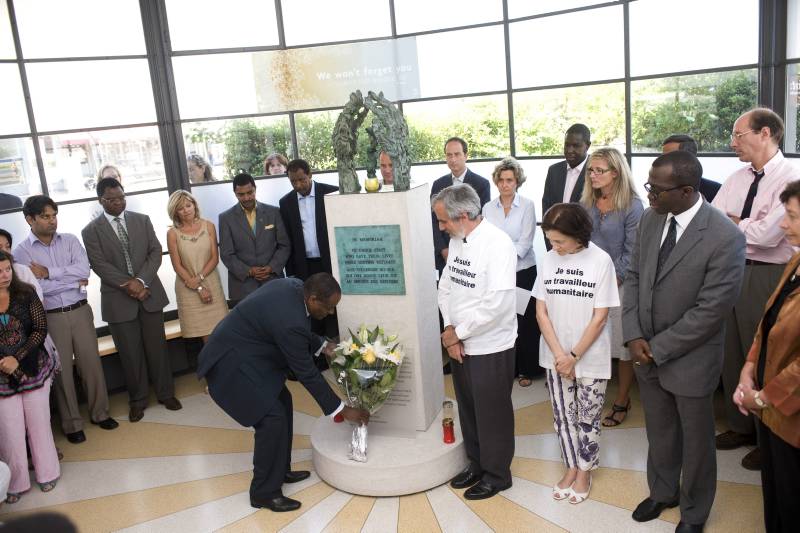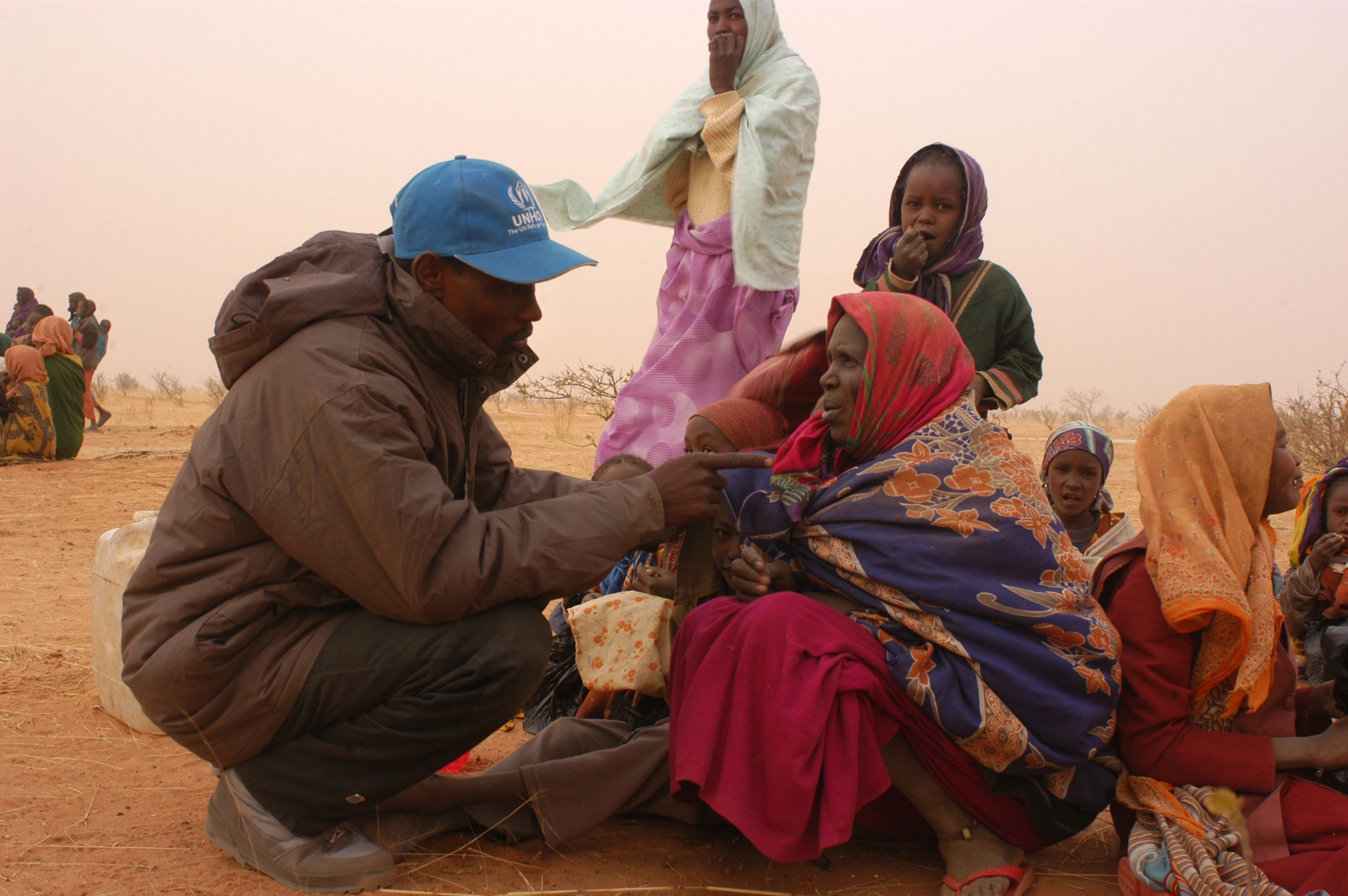UNHCR condemns killing of veteran Pakistani staff member
UNHCR condemns killing of veteran Pakistani staff member

GENEVA, July 16 (UNHCR) - The UN refugee agency on Thursday condemned the killing earlier in the day of a veteran staff member in Pakistan in a camp for displaced people as an "outrage."
High Commissioner for Refugees António Guterres mourned the murder earlier in the day of widely respected Programme Assistant Zill-e Usman, who was shot by unidentified gunmen in the Katcha Gari camp on the border of the Federally Administered Tribal Areas in Pakistan's North-West Frontier Province.
He was the third UNHCR staff member to be killed in Pakistan this year and his death raises fundamental questions about the future of UNHCR's operation in Pakistan, where it has been helping tens of thousands of civilians displaced by violence in the north-west since early May.
Another UNHCR staff member was injured in Wednesday's incident but is in stable condition in a nearby hospital. A guard working with the Commissionerate for Afghan Refugees, a government-funded agency, was also killed. Four to five gunmen reportedly opened fire on Usman as he was walking back from the camp administrative office to his car during a routine visit to the site.
"Our deepest condolences to the family of Zill-e Usman," said Guterres, noting that the 59-year-old leaves behind a wife and four children. "There is no justification for attacks on humanitarian workers dedicated to the protection and care of the most vulnerable people," he added. Guterres called on armed groups of all descriptions to cease attacks on humanitarian workers whose mission is to provide protection and assistance to the needy.
In Geneva, Deputy High Commissioner L. Craig Johnstone told staff gathered for a minute of silence that the killing of Usman "really is an outrage and a tragedy that affects us all. We are talking here of a man who was a pillar of UNHCR within Pakistan, a pillar of his community, a person of universal respect."
Johnstone said UNHCR would be looking at the shooting in detail to see what more needs to be done to allow the refugee agency to continue its work in safety. "We obviously need to do everything we can to protect our people."
Karim Amer, speaking in Geneva on behalf of UNHCR's Staff Council, said the death of three staff members in one operation in such a short time span was "unimaginable." He said UNHCR needed to look closely at its Pakistan operation.
On June 9, Aleksandar Vorkapic died in the bombing of the Pearl Continental hotel in Peshawar; on February 2, Syed Hashim, UNHCR senior driver, was killed in the kidnapping of John Solecki, head of the Quetta office, who was later released.
Usman, who was due to retire later this year, was one of UNHCR's most senior national staff members in Pakistan. He joined UNHCR's Peshawar office in 1984. At the time of the incident, he was working on the repatriation of people displaced by a conflict in Pakistan's tribal areas that broke out in August last year.
UNHCR is providing assistance to some 2 million people displaced by more recent fighting in regions surrounding the Swat Valley. "It is unacceptable that humanitarian workers doing such vital and selfless work are attacked in this way," said High Commissioner Guterres. "We urge all armed groups to show respect for their countrymen and for innocent civilians as well as for the humanitarian workers who are providing life-saving assistance."








